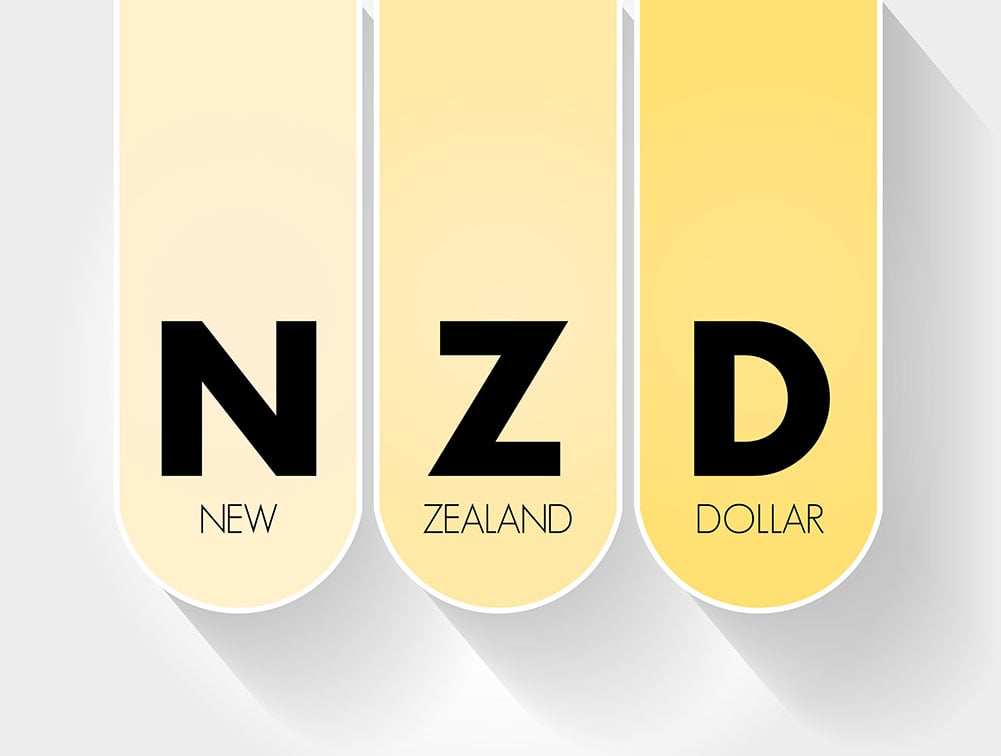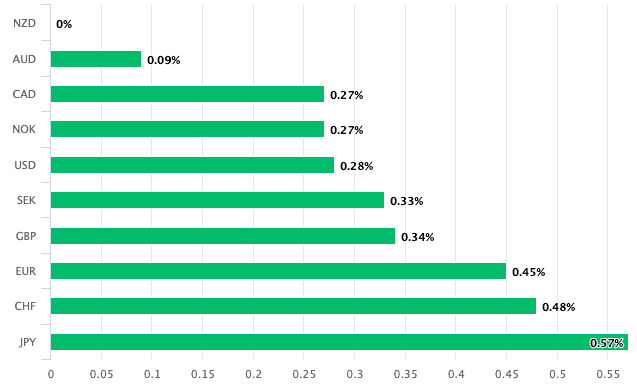
Image © Adobe Images
The New Zealand Dollar tops the performance board midweek.
There's a distinct 'risk on' mood in global equity markets on Wednesday as investors welcome news of a U.S.-Japan trade accord, and this is helping the Kiwi higher.
The U.S. will impose 15% tariffs on imports from Japan, which is lower than the initial 25% previously indicated. Crucially, this tariff rate will also include vehicles, prompting Japanese car maker stocks to surge.
This has sparked a rally that has rippled through the Japanese market, and is triggering gains right across Asia. "The Nikkei index jumps 3.75 %, probably as an important factor of uncertainty has been removed," says a note from KBC Bank.
The New Zealand Dollar is sensitive to broader investor sentiment, particularly when that pulse is being dictated by developments in Asia, and is higher as a result:
The Pound to New Zealand Dollar exchange rate has fallen a third of a per cent to reach 2.2482, the New Zealand-U.S. Dollar exchange rate is higher at 0.6016 and the Euro-New Zealand Dollar is lower by 0.40% at 1.9506.
"Equity markets globally are rallying on the view that deals reduce uncertainty," says Chris Turner, head FX analyst at ING Bank.
The U.S.-Japan trade deal includes a provision to create a $550BN Japanese fund that will invest in various projects in the U.S.
Above: NZD performance in the wake of news of the trade deal.
Also, Japan will broaden its vehicle safety standard requirements that will make it easier for U.S. manufacturers to export to Japan.
"We worked on it long and hard, and it's a great deal for everybody," said Donald Trump following the sealing of the accord in the White House.
The Japan deal represents a major step forward and out of the darkness that trade uncertainty has cast.
Although South Korea is yet to strike a deal, the contours of the Japan deal suggest this will be done soon.
However, expect some caution to persist until a deal between the EU and U.S. is reached. This could take some time and could require the August 01 deadline to be pushed back.
Here, some nervousness could grow, which would constrain risk sentiment. However, should a deal be reached it could be 'risk on' for the reainder of the summer, clearing the way for further NZ Dollar gains.

